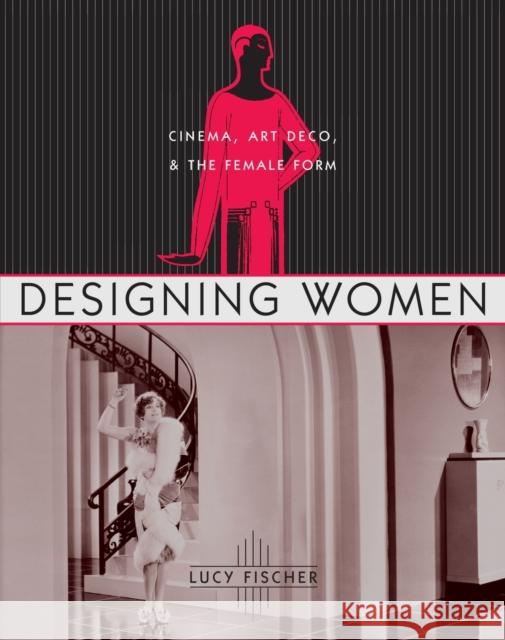Książki: » Architektura » Designing Women: Cinema, Art Deco, and the Female Form

Designing Women: Cinema, Art Deco, and the Female Form
ISBN-13: 9780231125017 / Angielski / Miękka / 2003 / 352 str.
Grand, sensational, and exotic, Art Deco design was above all modern, exemplifying the majesty and boundless potential of a newly industrialized world. From department store window dressings to the illustrations in the Sears, Roebuck & Co. catalogs to the glamorous pages of Vogue and Harper's Bazar, Lucy Fischer documents the ubiquity of Art Deco in mainstream consumerism and its connection to the emergence of the "New Woman" in American society. Fischer argues that Art Deco functioned as a trademark for popular notions of femininity during a time when women were widely considered to be the primary consumers in the average household, and as the tactics of advertisers as well as the content of new magazines such as Good Housekeeping and the Woman's Home Companion increasingly catered to female buyers. While reflecting the growing prestige of the modern woman, Art Deco-inspired consumerism helped shape the image of femininity that would dominate the American imagination for decades to come.
In films of the middle and late 1920s, the Art Deco aesthetic was at its most radical. Female stars such as Greta Garbo, Joan Crawford, and Myrna Loy donned sumptuous Art Deco fashions, while the directors Cecil B. DeMille, Busby Berkeley, Jacques Feyder, and Fritz Lang created cinematic worlds that were veritable Deco extravaganzas. But the style soon fell into decline, and Fischer examines the attendant taming of the female role throughout the 1930s as a growing conservatism challenged the feminist advances of an earlier generation. Progressively muted in films, the Art Deco woman--once an object of intense desire--gradually regressed toward demeaning caricatures and pantomimes of unbridled sexuality. Exploring the vision of American womanhood as it was portrayed in a large body of films and a variety of genres, from the fashionable musicals of Josephine Baker, and Fred Astaire and Ginger Rogers to the fantastic settings of Metropolis, The Wizard of Oz, and Lost Horizon, Fischer reveals America's long standing fascination with Art Deco, the movement's iconic influence on cinematic expression, and how its familiar style left an indelible mark on American culture.









